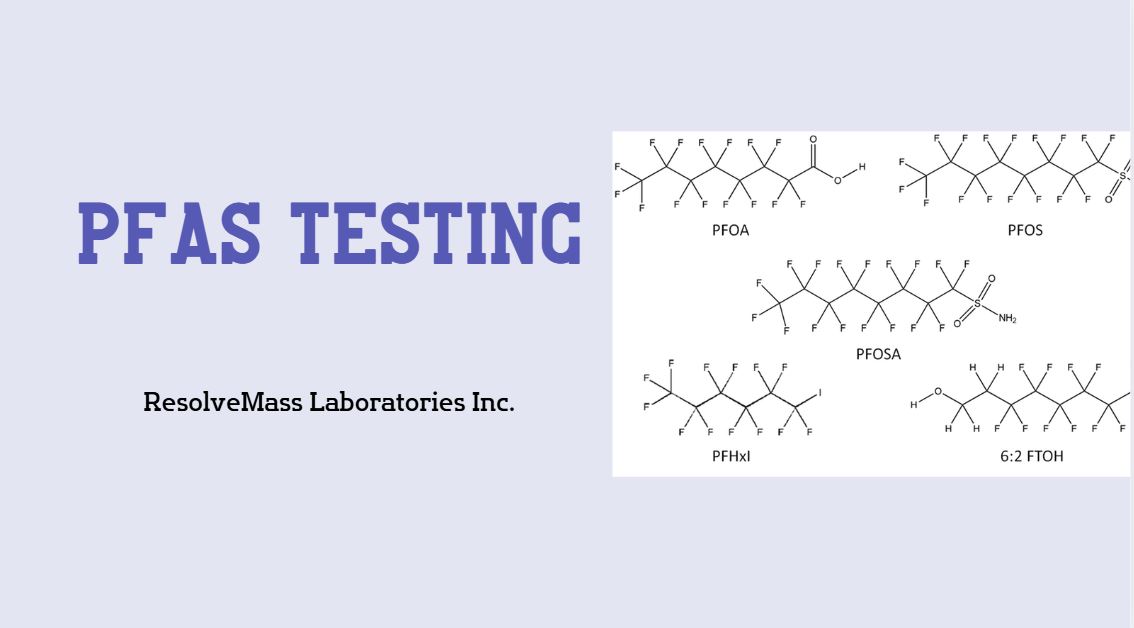Introduction
Deuterated Standards for LC-MS Analysis are essential tools for researchers who require precision, reliability, and repeatability in analytical chemistry. These isotopically labeled reference compounds allow scientists to accurately quantify and identify analytes in complex pharmaceutical and biological samples. At ResolveMass Laboratories Inc., we specialize in the synthesis, analytical validation, and global distribution of high-quality deuterated compounds that meet the strictest scientific and regulatory requirements.
Today, the use of deuterated compounds has become the gold standard in advanced analytical testing. Their ability to maintain data integrity across instruments, laboratories, and timeframes makes them indispensable. As scientific accuracy becomes more critical than ever, Deuterated Standards for LC-MS Analysis serve as a benchmark for achieving trustworthy and reproducible analytical results.
Video Overview: Understanding Deuterated Standards in LC-MS Analysis
🔍 Quick Summary: What You’ll Learn
- What Deuterated Standards for LC-MS Analysis are and how they function
- Why deuterium labeling improves analytical precision and reproducibility
- Key advantages for pharmaceutical, clinical, and environmental applications
- How ResolveMass Laboratories Inc. leads in custom synthesis and validation
- FAQs addressing technical and purchasing queries
What Are Deuterated Standards for LC-MS Analysis?
Deuterated Standards for LC-MS Analysis are isotopically labeled compounds where hydrogen atoms are replaced with deuterium (²H), a stable isotope of hydrogen. These compounds act as internal standards in liquid chromatography–mass spectrometry (LC-MS) assays, enabling exceptionally accurate quantitative and qualitative results.
Because these standards closely resemble the target analyte, they exhibit nearly identical behavior during ionization and chromatographic separation. This ensures reliable correction for matrix effects, ion suppression, and instrumental variability. As a result, they significantly enhance both reproducibility and data traceability.
Additionally, deuterated internal standards improve signal normalization between analytical runs and ensure consistent results across different laboratories worldwide.
Explore related synthesis methods:
👉 Custom Synthesis of Deuterated Chemicals
👉 Deuterated Internal Standards
Why Deuterated Standards Matter in LC-MS
The value of Deuterated Standards for LC-MS Analysis lies in their ability to normalize experimental variability and provide a reliable internal calibration. Each signal measured during analysis directly reflects the true analyte concentration, unaffected by sample complexity.
Key Benefits:
- Enhanced Quantitative Accuracy: Deuterated analogs co-elute with analytes, minimizing signal distortion.
- Improved Reproducibility: Consistent ionization efficiency across multiple analytical runs.
- Reduced Matrix Effects: Deuterium labeling minimizes signal suppression from interfering compounds.
- Regulatory Acceptance: Recognized by FDA and EMA bioanalytical validation guidelines.
Their use strengthens the reliability of pharmacokinetic and toxicological studies while improving data consistency in clinical and environmental applications.
For deeper insights:
📘 Analytical Characterization of Deuterated Compounds
How Do Deuterated Standards Work in LC-MS?
In LC-MS workflows, deuterated standards are introduced before the analysis begins. Since deuterium slightly increases the compound’s mass (typically +1 Da per substituted hydrogen), the instrument easily distinguishes between the analyte and standard peaks. This ensures absolute and traceable quantification.
| Parameter | Analyte | Deuterated Standard |
|---|---|---|
| Chemical Structure | Identical | Identical except for deuterium |
| Mass | e.g., 300 Da | e.g., 303 Da |
| Retention Time | Same | Nearly same |
| Purpose | Measured compound | Internal reference |
This minimal mass difference enables co-elution while allowing clear spectral separation. The outcome is a stable and reproducible analytical environment that maintains accuracy under varying conditions.
Visit:
🔗 Deuterated Labelled Chemical Synthesis Company in Canada
Applications of Deuterated Standards for LC-MS Analysis
1. Pharmaceutical Research
In pharmaceutical development, these standards are used in DMPK (Drug Metabolism and Pharmacokinetics) studies to precisely track drug and metabolite concentrations.
👉 Deuterium-Labeled Drug Metabolite Standards
They ensure reliable validation of bioanalytical methods, supporting safety assessments and identifying trace impurities during formulation.
2. Clinical Diagnostics
They provide accurate quantitation of biomarkers in biological matrices like blood and urine. In precision medicine, Deuterated Standards for LC-MS Analysis enhance assay accuracy and ensure consistent inter-laboratory validation.
3. Environmental Analysis
These standards enable precise detection of trace pollutants, pesticides, and pharmaceutical residues in soil and water samples. By compensating for matrix interferences, they improve analytical accuracy for environmental monitoring.
4. Proteomics and Metabolomics
Used to quantify biomolecules in complex biological systems, they assist in identifying subtle metabolic differences. This contributes to biomarker discovery and the understanding of disease pathways.
5. Material & Polymer Science
Deuterated compounds are used to study polymer degradation and molecular diffusion. Their stability helps scientists analyze polymer interactions, product aging, and performance.
📗 Deuterated Polymers: Synthesis & Applications
The Science Behind Deuterium Labeling
Deuterium, the stable isotope of hydrogen containing one neutron, forms slightly stronger C–D bonds compared to C–H bonds. This makes Deuterated Standards for LC-MS Analysis more stable while retaining identical chemical reactivity.
This stability ensures reliable performance in method development, inter-laboratory validation, and long-term storage. Enhanced bond strength also improves shelf-life and reduces volatility, ensuring consistency in quantitative studies.
Learn more:
Custom Deuterated Compounds | Stable Isotope Labeled Compounds
ResolveMass Laboratories: Your Trusted Partner in Deuterated Standard Solutions
At ResolveMass Laboratories Inc., we combine deep experience in isotope chemistry and analytical science to deliver precise and reproducible deuterated standards.
We provide:
- Custom synthesis of deuterated compounds for LC-MS, GC-MS, and NMR
- Analytical validation and isotopic purity certification
- A full portfolio of deuterated APIs, solvents, and internal standards
- Reliable global distribution from Canada and the USA
Every ResolveMass product undergoes stringent quality testing, ensuring exceptional accuracy and purity.
🧪 Explore:
Deuterated APIs | Buy Deuterated Compounds | Supplier of Deuterated Reagents
Choosing the Right Deuterated Standard for LC-MS Analysis
When choosing your standard, consider:
- Labeling Position: Avoid exchangeable sites like OH or NH groups.
- Purity & Enrichment: Aim for ≥ 98% isotopic enrichment.
- Matrix Compatibility: Match solvent and column conditions.
- Regulatory Compliance: Source from ISO-certified suppliers.
Selecting the proper Deuterated Standards for LC-MS Analysis ensures consistent and accurate quantitation across all analytical workflows.
For consultation:
🔬 Deuterated Standards & Solvents for NMR
Common Challenges & How ResolveMass Addresses Them
| Challenge | Solution by ResolveMass |
|---|---|
| Hydrogen-Deuterium Exchange | Stabilized isotope labeling methods |
| Impurities in Standards | Advanced purification and LC-MS validation |
| Limited Availability | On-demand custom synthesis |
| Data Inconsistency | Certified reference materials with full traceability |
Through continuous research and quality control, ResolveMass ensures analytical consistency and reliability across every batch produced.
Conclusion
Deuterated Standards for LC-MS Analysis are the foundation of reliable quantitative testing. They enhance accuracy, reproducibility, and comparability across pharmaceutical, clinical, and environmental laboratories.
At ResolveMass Laboratories Inc., we combine scientific innovation with analytical precision to deliver isotopic standards that empower laboratories worldwide. Our mission is to support research with products that ensure quality, compliance, and confidence in every result.
Frequently Asked Questions (FAQs)
Deuterated Standards for LC-MS Analysis are special chemical compounds in which hydrogen atoms are replaced with deuterium, a stable isotope. These standards act as internal references that help scientists achieve precise and consistent measurements in LC-MS testing. Their use improves both accuracy and reproducibility across various analytical applications.
Deuterium is preferred because it is non-radioactive, chemically stable, and closely resembles hydrogen in structure and reactivity. This allows it to replace hydrogen without altering the compound’s natural behavior in LC-MS analysis. As a result, it maintains identical chromatographic properties while providing enhanced stability.
These standards are produced through controlled chemical exchange, catalytic deuteration, or fully customized synthesis. Each process is designed to ensure that the isotopic purity typically exceeds 98%, making them reliable for high-precision laboratory work.
While not mandatory for all studies, they are strongly recommended for bioanalytical and pharmaceutical testing that requires accurate quantification. Using deuterated standards helps maintain method validation consistency and ensures compliance with regulatory expectations.
It is best to select deuterated compounds with at least 98% isotopic enrichment. High-purity standards minimize background interference and ensure clear mass separation during analysis, improving data quality and reliability in every LC-MS workflow.
By compensating for matrix effects and correcting for minor instrument fluctuations, these standards stabilize the internal calibration of LC-MS systems. This ensures that results remain consistent across multiple analyses, laboratories, and time points.
These compounds should be stored in cool, dry conditions, away from moisture and light. Keeping them under an inert gas environment helps prevent hydrogen-deuterium exchange, ensuring long-term stability and purity.
References
- Di Martino, R. M., Maxwell, B. D., & Pirali, T. (2023). Deuterium in drug discovery: Progress, opportunities and challenges. Nature Reviews Drug Discovery, 22(7), 562–584. https://doi.org/10.1038/s41573-023-00703-8
- Kopf, S., Bourriquen, F., Li, W., … & Morandi, B. (2022). Recent developments for the deuterium and tritium labeling of organic molecules. Chemical Reviews, 122(6), 6634-6713. https://doi.org/10.1021/acs.chemrev.1c00795
- Munir, R., Zahoor, A. F., Khan, S. G., Hussain, S. M., Noreen, R., Mansha, A., Hafeez, F., Irfan, A., & Ahmad, M. (2025, August 21). Total syntheses of deuterated drugs: A comprehensive review. Top Current Chemistry (Cham), 383(3), 31. https://doi.org/10.1007/s41061-025-00515-x


